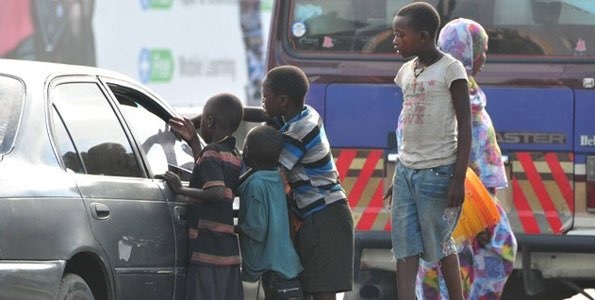
Many researches indicated that Streetism of children has continued to grow worldwide. Especially in Africa, many factors are believed to contribute to the case. The state of the economy, poverty, lack of educational opportunities, rural to urban migration, social changes (mainly linked to weakening family structures and family abuse), displacement, civil unrest or political violence, and HIV/AIDS are said to be the major factors that push children to live on the streets.
UNICEF report indicated that the number of street children is likely to increase even more because of the influx of internal migration to the cities from all corners of the country.
Though there is different estimation on the figure, a recent report indicated that some 150,000 children live in the streets of Ethiopia and out of which about 60,000 are found in the capital. Lack of commitment from stakeholders to support and absence of partnership among them are taken reasons for the ever increasing number of streetism.
Lately, SOS Children’s Villages in Ethiopia hosted a high-level meeting to launch its project working with Children in the Street Situation in three major cities in Ethiopia, Addis Ababa, Adama and Dire Dawa.
Speaking at the launching, National Director of SOS Children’s Villages, Sahlemariam Abebe, said helping street children needs a coordinated effort of every stakeholder. Strong partnership among different actors will ease the effort towards filling their gaps. “The issues of children in the street situation need a concrete action plan and paving the way for strong partnership and better working modality.”
As to him, SOS Children’s Villages in Ethiopia started its work with its flagship ‘SOS Family Care’ programmes providing long and short-term care for children who have lost parental care starting from 2008. It has since expanded its services to reach out to children at risk of losing parental care through Family Strengthening Programmes.
The overall objective of the Family Strengthening Programmes is providing holistic support to vulnerable children and their families, through which extremely vulnerable families, often close to destitution and even feeling forced to abandon their children, are supported to keep their children, care for them adequately, and get back on their feet, he noted.
This project is expected to last for five years and has a total budget of €4,376,073.65, marked as a great step taken by SOS Children’s Villages in Ethiopia in reaching another group of vulnerable children.
Through its Addis Ababa and Harar regional Programmes, SOS Children’s Villages seeks to implement this new initiative in Addis Ababa, Adama and Dire Dawa cities, employing integrated interventions that combine outreach services, family tracing and reintegration, skills development and creating community based durable solutions targeting systems, structures, and policies related to children on the streets.
The Director further indicated that the implementation would include working with street children, adult caregivers, and young people as a strategy to address the situation of street children.
In order to address the plight of children on/off the street, the project uses a hybrid approach of direct short-term support, skills development, family reintegration and strengthening, systems strengthening, and policy advocacy, with the aim to transform and empower children who work and live on the streets of Addis Ababa, Adama and Dire Dawa cities.
Regarding the children who are expected to be benefited from the program, he mentioned that through the project, over 9,000 children on the streets will receive outreach services, including open feeding, mobile health and counselling services. Moreover, it will provide temporary shelters for 2,500 children to protect them from harm.
Similarly, close to 1,500 children on the street would receive formal primary, secondary, technical and vocational skills training while 2,000 children who ran away from their homes and who are willing to go back would be assisted to reunite with their families, he added.
Capacity of community-based organizations (CBOs) and local NGOs will be enhanced to sustainably deliver services to children in the street situation and their families in their respective localities. Prevention and rights promotion activities for children in the street situation will be improved, as to him.
During the implementation of this project, SOS Children’s Villages in Ethiopia will cooperate with the relevant CSO projects, government initiatives and others. A participatory integrated communication plan will be developed to get all stakeholders and partners involved in the process.
According to the Director, actors and partners will be involved through a joint project management team. Communities, local government, SOS Children’s Villages and other private organizations will be part of the operation of the project activities. This partnership will be formalized through specific cooperation agreements.
Since its founding in the wake of the 1973 famine, SOS Children’s Villages in Ethiopia has provided childcare, protection, family strengthening, health and education services to children who have lost or are at risk of losing parental care. It has provided life-saving humanitarian assistance to conflict and drought affected people, especially women and children. SOS Children’s Villages is operational in seven regional states, including Tigray, Addis Ababa, Amhara, Harari, Oromia, SNNP and Somali.
BY BETELHEM BEDLU
The Ethiopian Herald 21 May 2022





